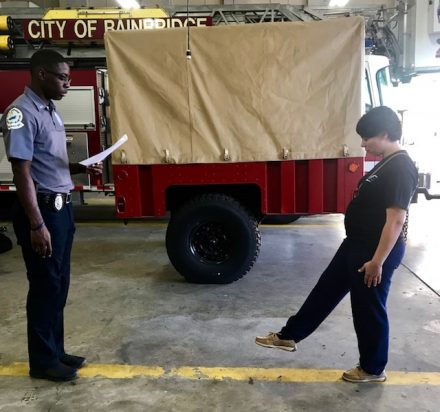Bainbridge Public Safety completes DUI/field sobriety testing course
Published 2:19 pm Friday, February 8, 2019
Bainbridge Public Safety Officers participated in and completed a D.U.I. Detection and Standardized Field Sobriety Testing Course held on Monday, February 4th and Tuesday, February 5th. Eight officers completed the 20 hour course which was led by Captain Ryan Wimberley, and featured classroom instruction as well as practical experience. The eight officers are Richard Collins, Maria Bonilla, LaDaric Jones, Lakatie Reels, George McMillan, Jason Hayes, Rob Green, and Tarow Barney.
During the two full days of training, officers learned how to detect a person who is D.U.I. (including impaired motorcycle operators), face-to-face observation and interview of the driver while still in the vehicle and the decision to instruct the driver to exit the vehicle or dismount, administering Standardized Field Sobriety Testing, documenting and reporting, and the legal components of a D.U.I. case. Several volunteers were brought to Public Safety Headquarters and utilized during the final stage of training to give the officers real subjects to test under tightly monitored D.U.I. daylight and nighttime scenarios.
To successfully complete the class, each officer was required to pass both a written exam and a live Standardized Field Sobriety Test. These eight Bainbridge Public Safety Officers are now certified by the National Highway Traffic Safety Association, and will be able to conduct Field Testing on possible D.U.I. drivers to serve as valid and useful indicators of impairment.
Class curriculum stressed the fact that a person can’t drive safely if they’re impaired and that’s why it’s illegal in every state to drive under the influence of alcohol, marijuana, opioids, methamphetamines, or any potentially impairing drug. Driving while impaired by any substance, legal or illegal, puts a person (and others) in harm’s way. Captain Ryan Wimberley is one of the only NHTSA certified Field Sobriety Testing Instructors in the Southwest Georgia region. According to Wimberley, “Impaired drivers can’t accurately assess their own impairment which is why it is important not to drive after using impairing substances. If a person feels different, they are going to drive different.”






